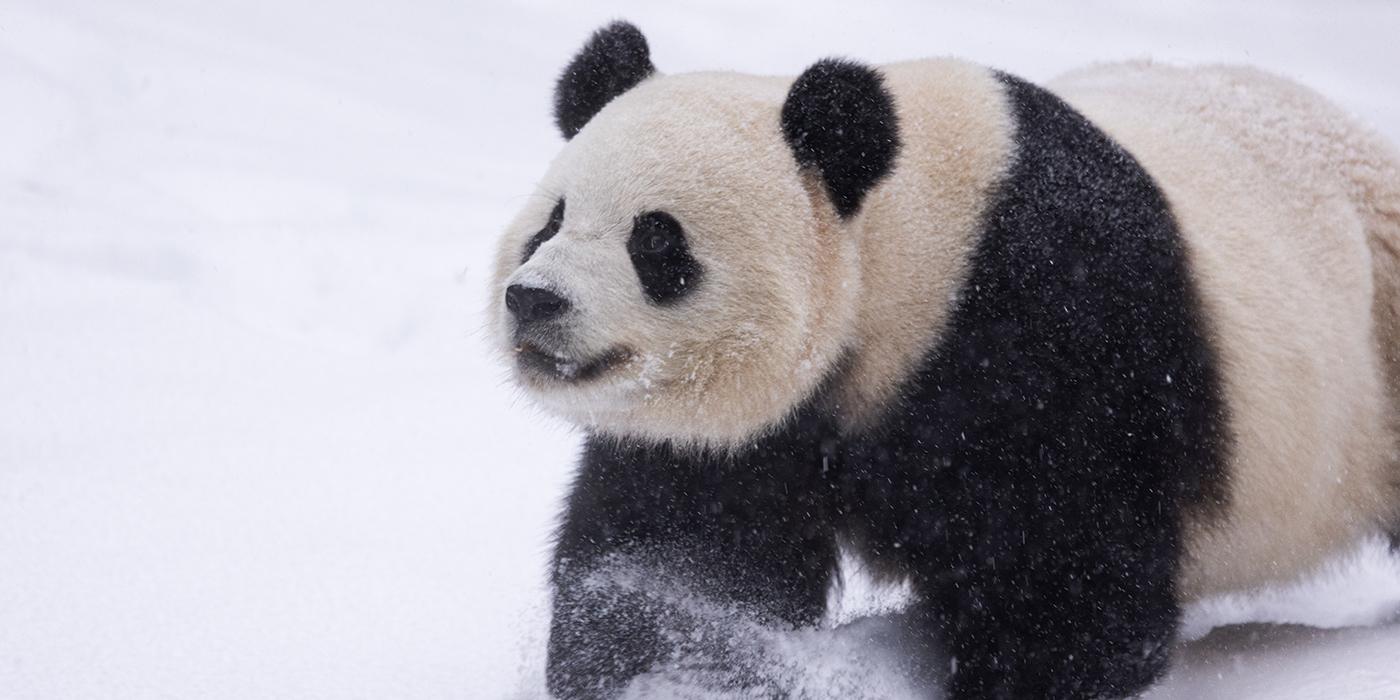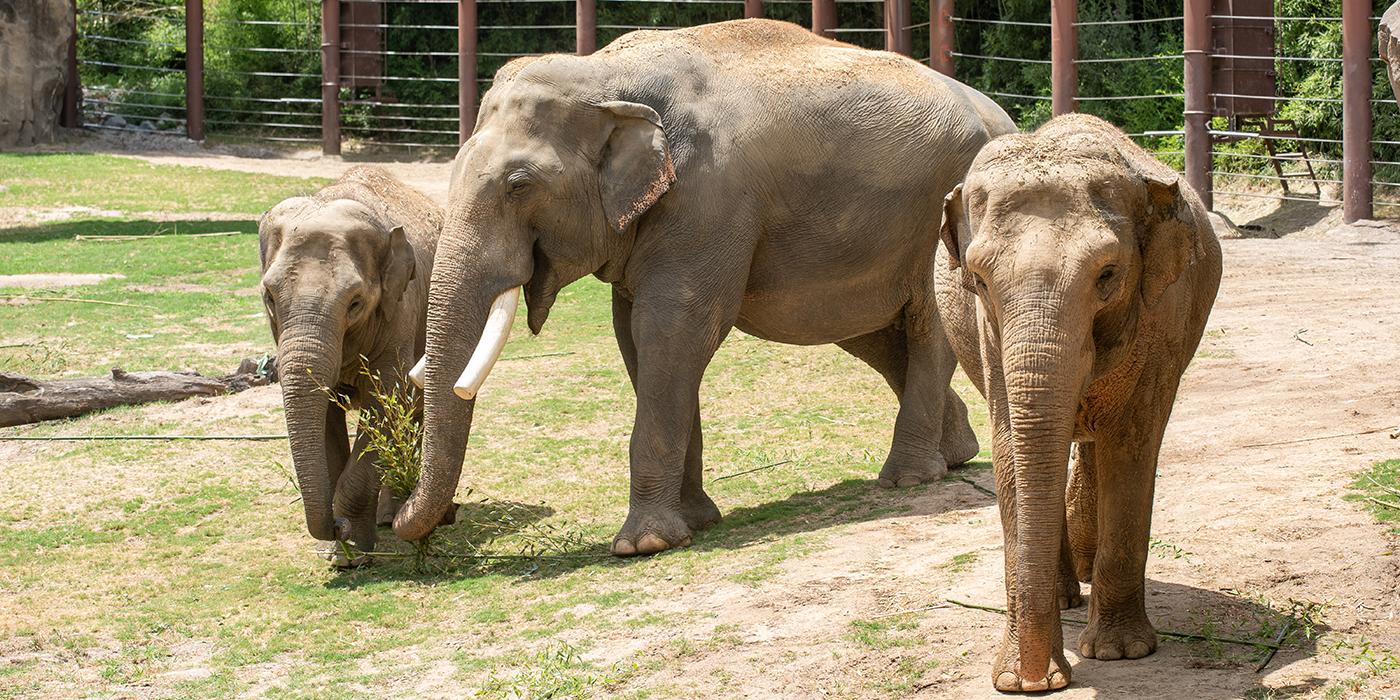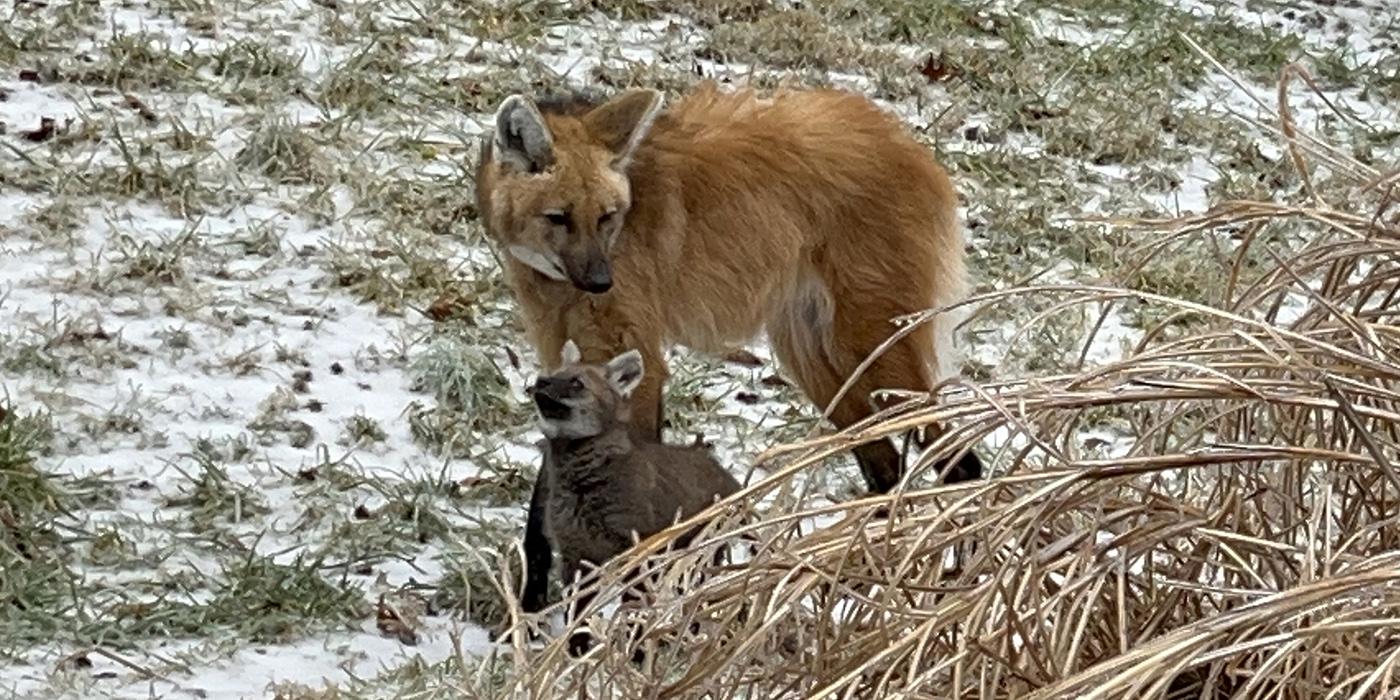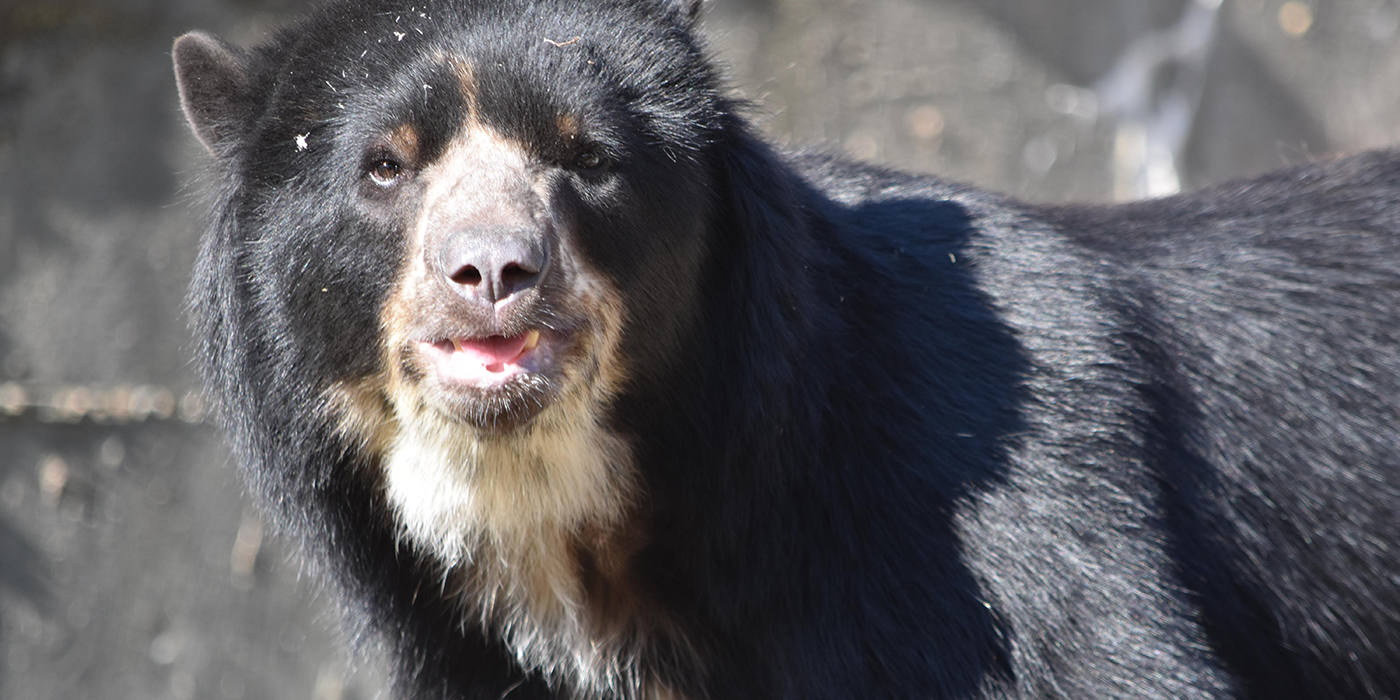See How the Pandas (And Other Animals) Enjoyed a Chilly Snow Day
Several inches of snowfall kept the Smithsonian’s National Zoo and Conservation Biology Institute closed to visitors on Monday and Tuesday, but the animals and their caretakers still had a good time!
While maintenance and groundskeeping crews dug out the Zoo’s pedestrian walkways, many animals—especially the ones from cool, temperate climates—took the opportunity to explore, play and interact with their snowy surroundings.
Take a look at the animals who ventured outdoors during the snow day, both at the Zoo and at the Front Royal, Virginia campus.
Tigers, Opossums, Elephants and More!
In each of the animal habitats at the Smithsonian’s National Zoo, keepers offer various forms of enrichment to keep the animals physically and mentally engaged…and on a snow day, that means snow!
As part of their typical standards of care, all of the outdoor animals have heated dens or indoor areas to stay in when the weather gets too cold. For animals who live indoors year-round—like the residents of the Small Mammal House—keepers got creative by bringing a little snow inside for the animals to play and interact with.
Giant Pandas
It was the first major snowfall in the Washington, D.C. area for the new giant pandas. Both Qing Bao and Bao Li took the opportunity to climb, dive and somersault across their wintry habitats. The snow added a fun new type of enrichment for the rare bear pair, who will make their public debut on Jan. 24.
California Sea Lion
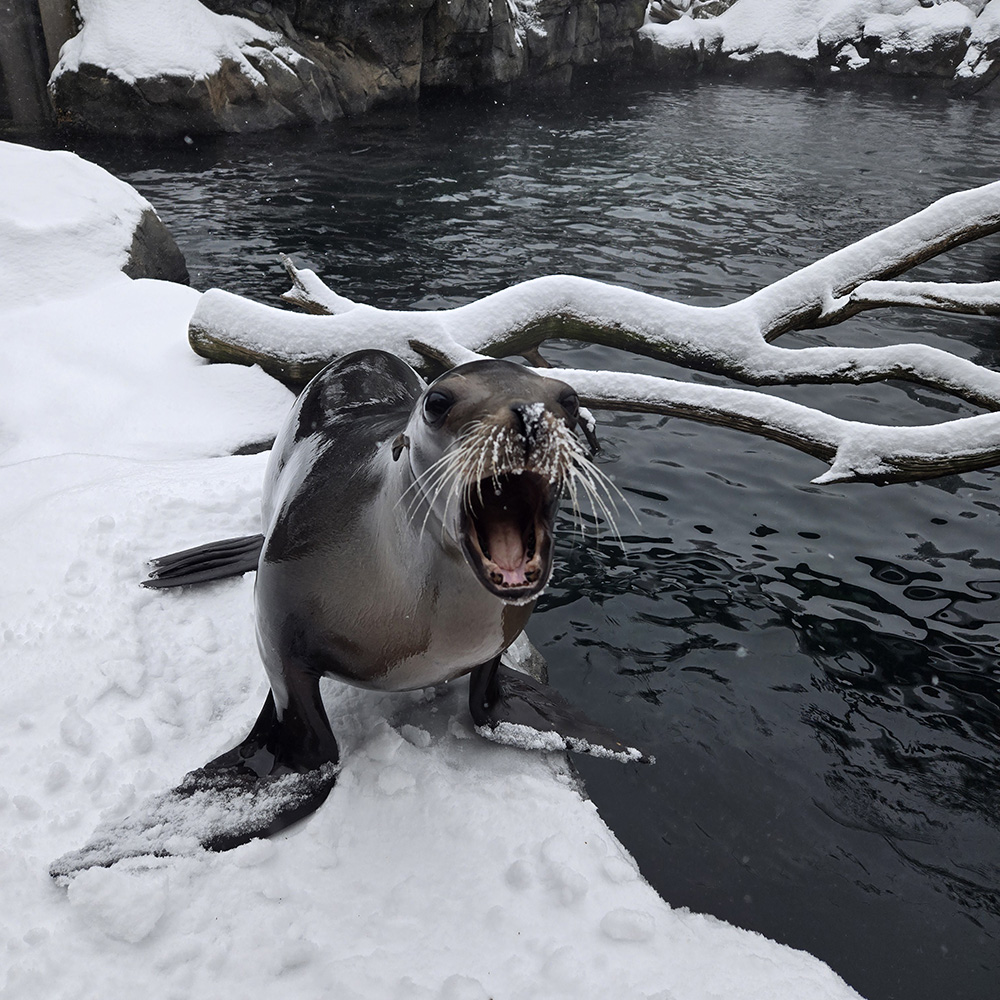
Smithsonian/Sarah Snider-Keys
Over at the American Trail, the sea lions took a 'polar plunge'! The sea lion colony, including 16-year-old Sidney, pictured above, enjoyed the snow as it blanketed the area near their outdoor pool. The California sea lions’ natural habitat ranges from the coasts of southern Mexico to as far north as Alaska, so cold air doesn’t keep these playful pinnipeds from taking a dip!
Red Panda
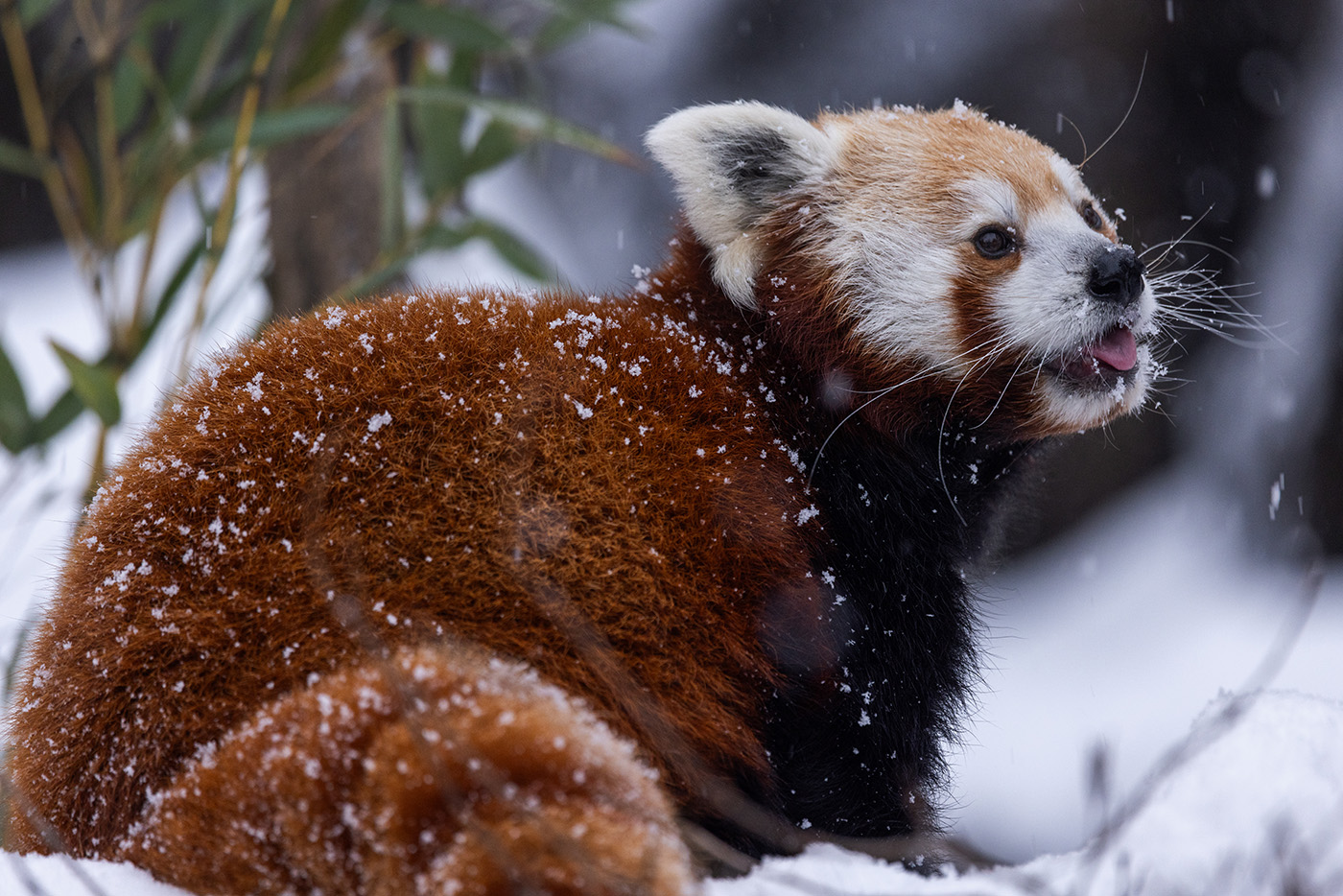
Smithsonian/Roshan Patel
Asa, a female red panda who lives on the Asia Trail, stuck out her tongue during the snowfall. Her thick fur, bushy tail and insulated paws make her well-suited for cold environments.
Asian elephant
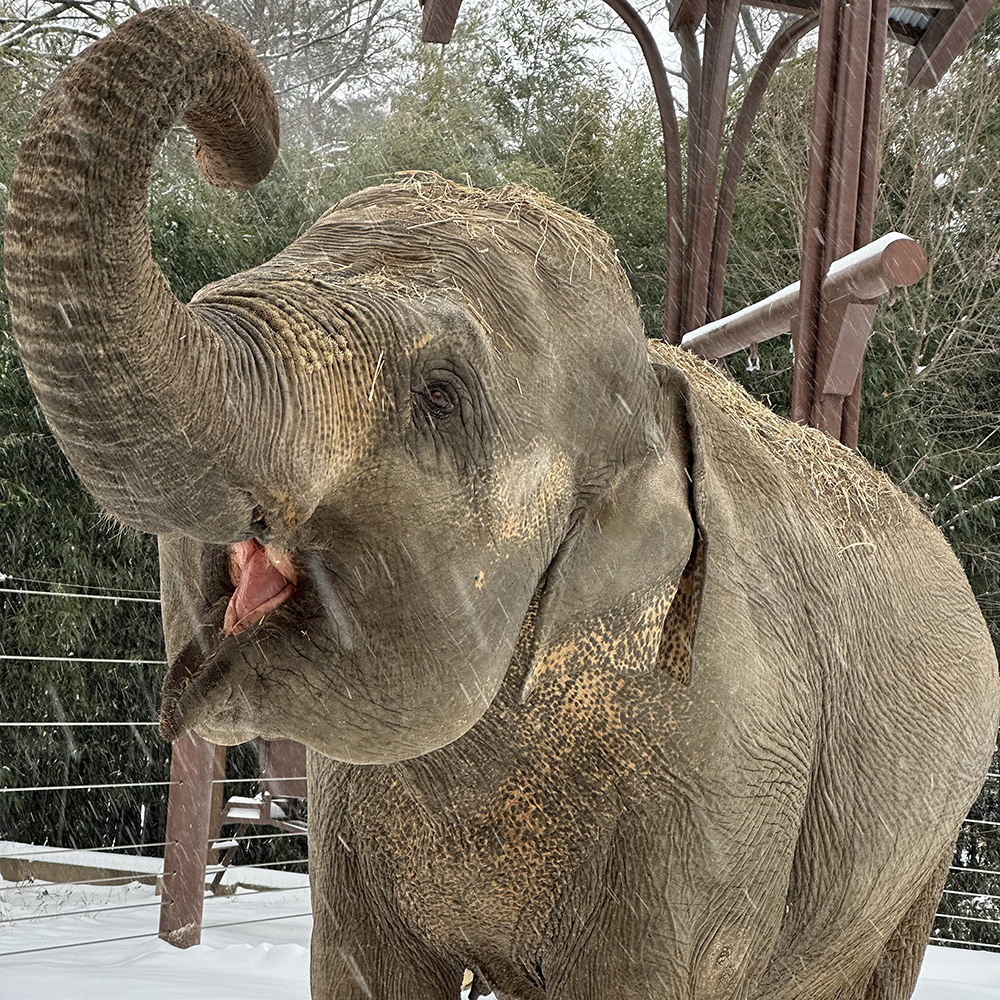
Smithsonian/Dillon Hall
Even the Asian elephants chose to venture outdoors! These intelligent animals can tolerate cool conditions, so Maharani (above) was curious enough to leave her heated barn and check out the falling snow at Elephant Trails.
Cheetah
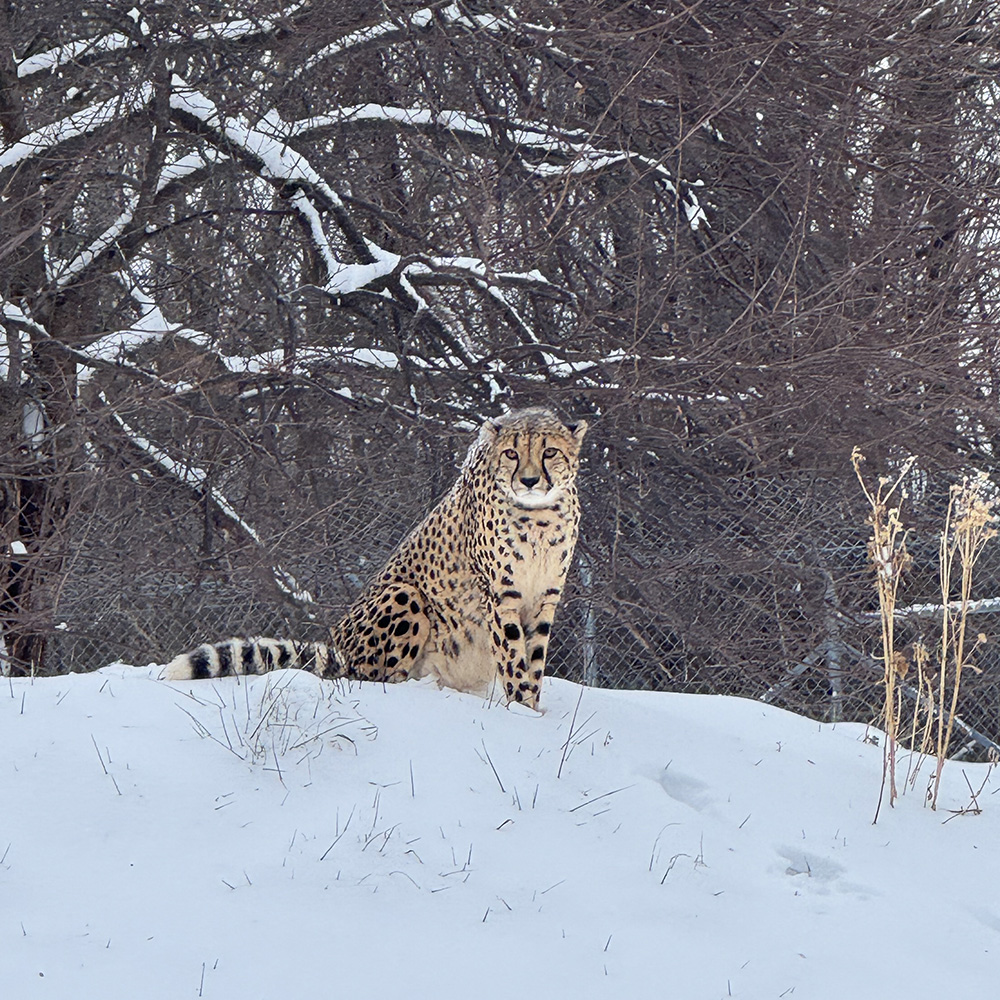
Smithsonian/Mackenzie Perry
While some Zoo animals view the snow as an opportunity to play, others are more inclined to investigate.
Over at the Zoo’s conservation science campus in Front Royal, Virginia, the cheetahs were inquisitive about the layer of snow covering their habitat. Cheetahs acclimate well to Washington-area winters, developing thick coats of fur to keep them comfortable. Here, female cheetah Zura surveys her surroundings from atop a snowy hill.
Persian onagers
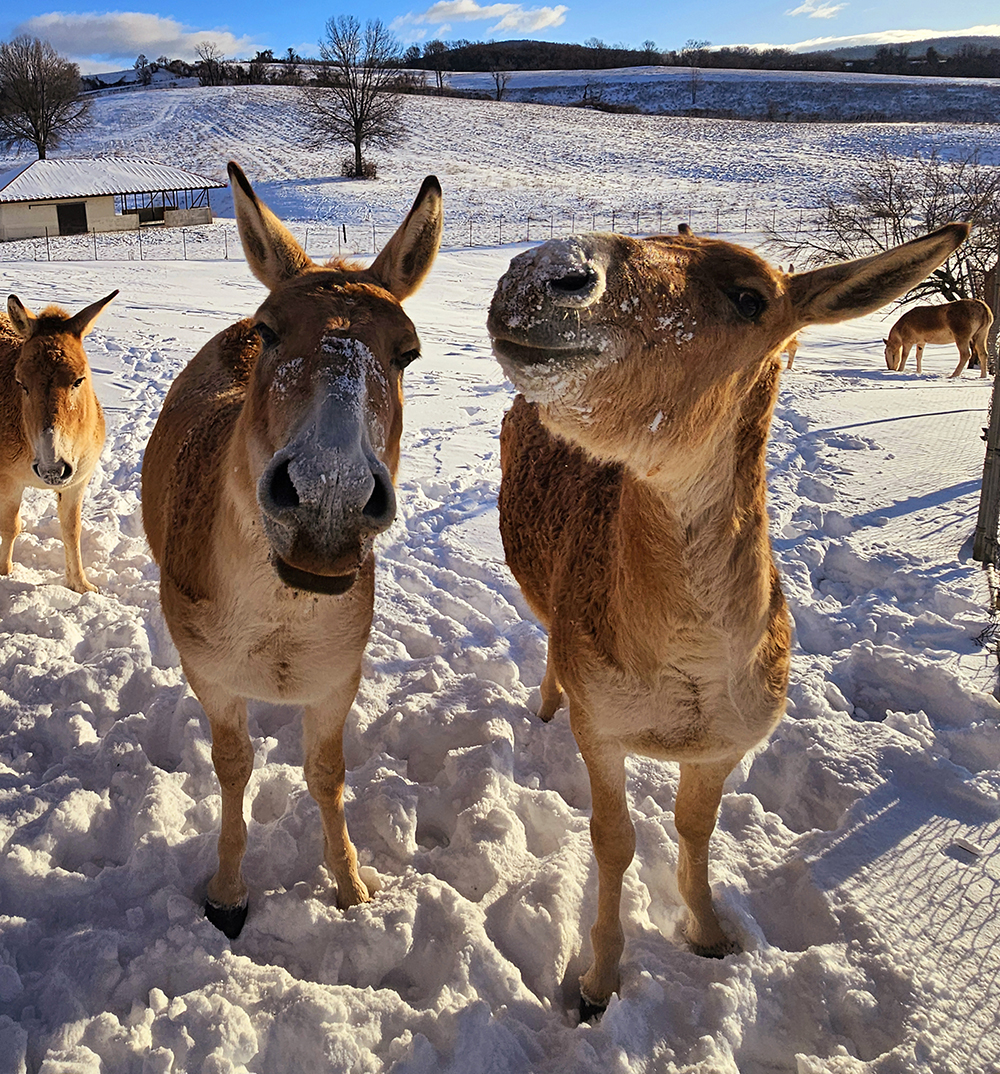
Smithsonian/Tara Buk
Persian onagers are an endangered species that’s distantly related to domestic horses and donkeys. Because they come from the harsh, dry plateaus of central Asia, onagers can handle extreme temperatures well… which is probably why these two decided to stick their noses into the snow.
Scimitar-horned oryx
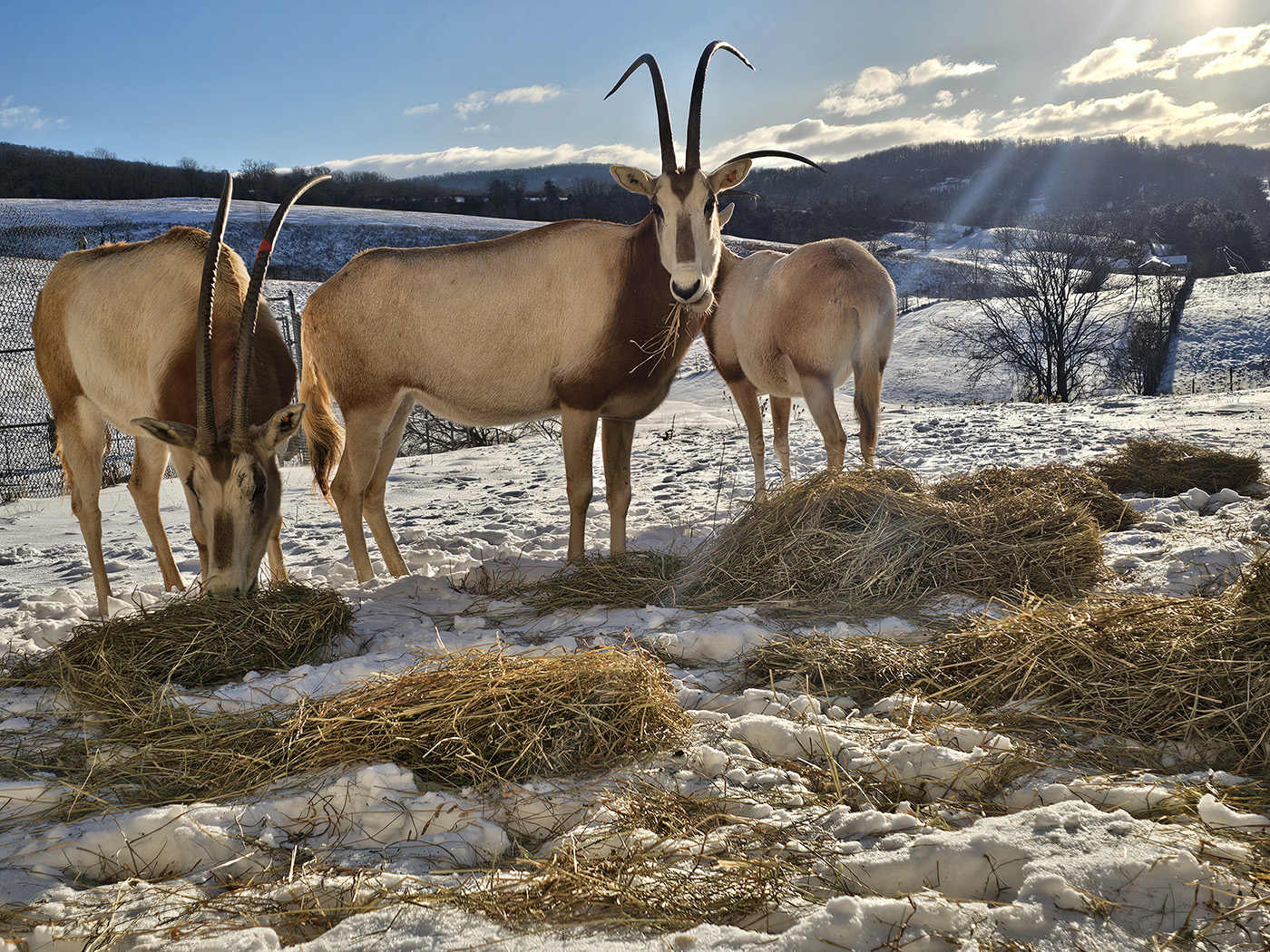
Smithsonian/Tara Buk
You might think that a species adapted to the deserts of northern Africa, like the scimitar-horned oryx (above), wouldn’t exactly thrive in the winter. However, in the Sahara Desert, nighttime winter temperatures can drop to around 25 degrees Fahrenheit, or -4 degrees Celsius… which means having a cold-weather snack was snow problem for the oryx herd!
Winter is one of the best times to visit the Smithsonian’s National Zoo. Plan your visit today!

